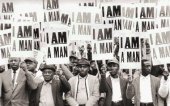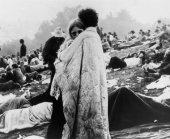Swing low, sweet chariot
Coming for to carry me home,
Swing low, sweet chariot,
Coming for to carry me home.
I looked over Jordan, and what did I see
Coming for to carry me home?
A band of angels coming after me,
Coming for to carry me home.
Swing low, sweet chariot
Coming for to carry me home,
Swing low, sweet chariot,
Coming for to carry me home.
Sometimes I'm up, and sometimes I'm down,
(Coming for to carry me home)
But still my soul feels heavenly bound.
(Coming for to carry me home)
Swing low, sweet chariot
Coming for to carry me home,
Swing low, sweet chariot,
Coming for to carry me home.
The brightest day that I can say,
(Coming for to carry me home)
When Jesus washed my sins away.
(Coming for to carry me home)
Swing low, sweet chariot
Coming for to carry me home,
Swing low, sweet chariot,
Coming for to carry me home.
If I get there before you do,
(Coming for to carry me home)
I'll cut a hole and pull you through.
(Coming for to carry me home)
Swing low, sweet chariot
Coming for to carry me home,
Swing low, sweet chariot,
Coming for to carry me home.
If you get there before I do,
(Coming for to carry me home)
Tell all my friends I'm coming too.
(Coming for to carry me home)
Swing low, sweet chariot
Coming for to carry me home,
Swing low, sweet chariot,
Coming for to carry me home.
Coming for to carry me home,
Swing low, sweet chariot,
Coming for to carry me home.
I looked over Jordan, and what did I see
Coming for to carry me home?
A band of angels coming after me,
Coming for to carry me home.
Swing low, sweet chariot
Coming for to carry me home,
Swing low, sweet chariot,
Coming for to carry me home.
Sometimes I'm up, and sometimes I'm down,
(Coming for to carry me home)
But still my soul feels heavenly bound.
(Coming for to carry me home)
Swing low, sweet chariot
Coming for to carry me home,
Swing low, sweet chariot,
Coming for to carry me home.
The brightest day that I can say,
(Coming for to carry me home)
When Jesus washed my sins away.
(Coming for to carry me home)
Swing low, sweet chariot
Coming for to carry me home,
Swing low, sweet chariot,
Coming for to carry me home.
If I get there before you do,
(Coming for to carry me home)
I'll cut a hole and pull you through.
(Coming for to carry me home)
Swing low, sweet chariot
Coming for to carry me home,
Swing low, sweet chariot,
Coming for to carry me home.
If you get there before I do,
(Coming for to carry me home)
Tell all my friends I'm coming too.
(Coming for to carry me home)
Swing low, sweet chariot
Coming for to carry me home,
Swing low, sweet chariot,
Coming for to carry me home.
envoyé par Bartleby - 12/1/2012 - 12:06
×
![]()










Scritta da Uncle Wallace Willis, un “liberto” entrato a far parte - come molti schiavi afroamericani emancipati – di una nazione indiana, nello specifico quella Choctaw (in Mississippi, Florida, Alabama e Louisiana ), che durante la Guerra civile si schierò con i Confederati.
Se la catara Lo boièr è la più antica canzone “cripto-simbolica”, in codice, presente sulle CCG, su queste pagine ce n’è almeno un’altra di canzone del genere, canto adoperato da perseguitati per cercare di sfuggire alla schiavitù impedendo ai propri aguzzini di capire intenzioni, piani di fuga ed il percorso del cammino verso la libertà.
Follow the Drinking Gourd era per l’appunto una canzone in codice attraverso la quale veniva indicato uno dei tanti percorsi dell’“Underground Railroad”, la rete di cammini segreti attraverso cui gli schiavi neri tentavano la fuga dagli Stati schiavisti per raggiungere la libertà al Nord:
I percorsi dell’Underground Railroad
Follow the Drinking Gourd è una vera e propria mappa cifrata che indica una via di fuga da Mobile, in Alabama, lungo il fiume Tombigbee per raggiungere poi il fiume Tennessee (Tombigbee e Tennessee sono oggi congiunti da un canale artificiale costruito nella seconda metà del secolo scorso) e di qui la confluenza con l’Ohio nei pressi di Paducah, nel Kentucky.
Ma molti altri classici “Negro Spirituals” sono ascrivibili alla storia ed al mito dell’Underground Railroad attraverso la quale, tra la fine del 1700 e la Guerra Civile, non meno di 30.000 afroamericani riuscirono a scappare alla schiavitù. Uno è Go down, Moses ed un altro è proprio questo altrettanto famoso “Swing Low, Sweet Chariot”, nel tempo interpretato da quasi tutte le voci, nere e non, più celebri ed inciso per la prima volta nel 1909 dai Fisk Jubilee Singers, coro nero a cappella di voci femminili e maschili nato nel 1871 presso la Fisk University del Tennessee ed esistente a tutt’oggi. Memorabile anche la versione a cappella di Joan Baez a Woodstock nel 1969.